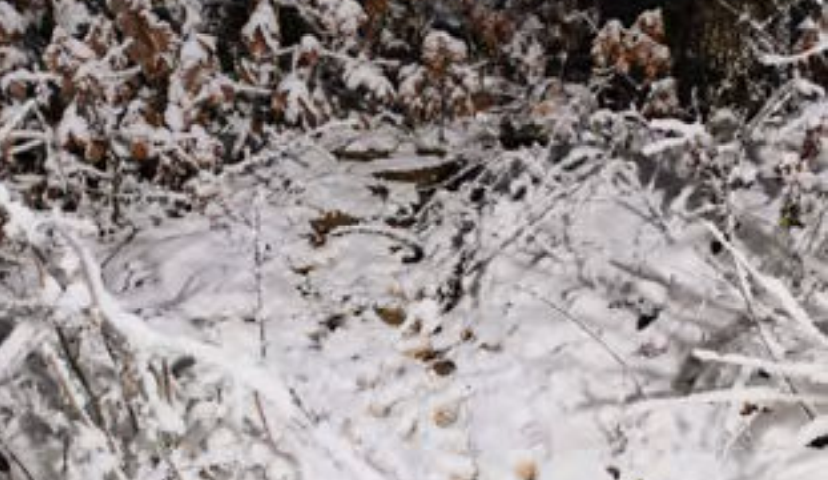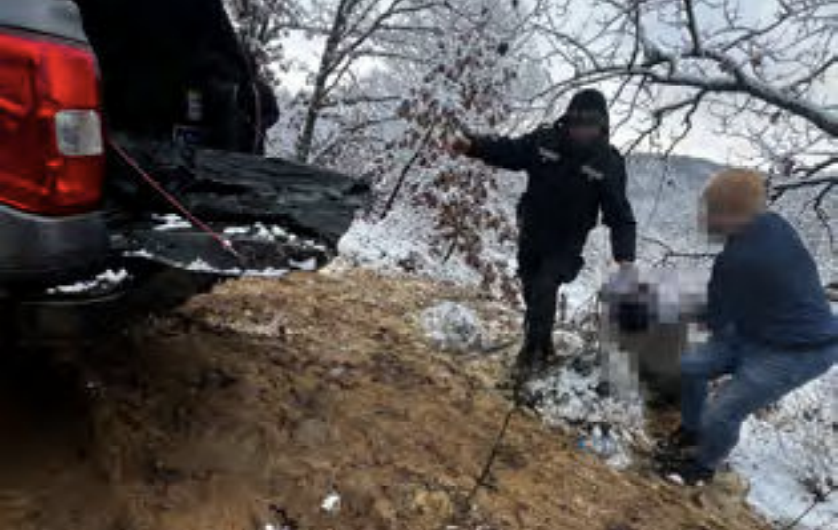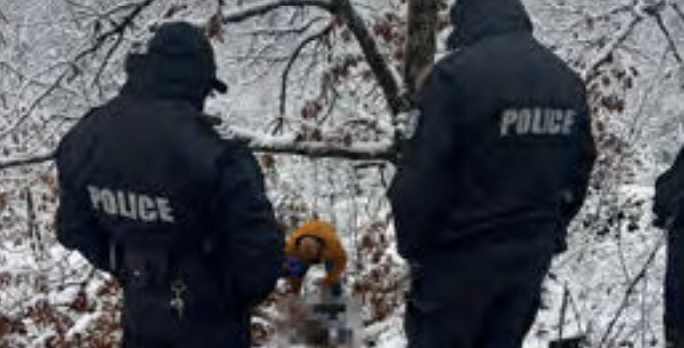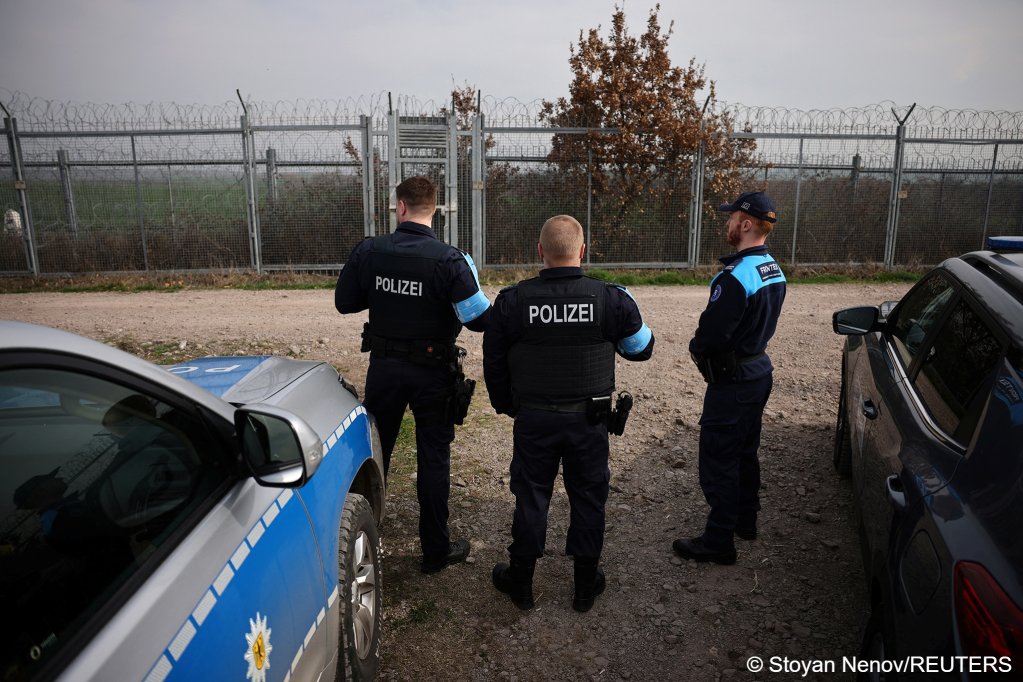A Frontex investigation has confirmed that Bulgarian Border Police failed to respond to multiple distress alerts for three Egyptian minors who later died of hypothermia near the Turkish border.
The EU border agency Frontex has concluded that Bulgarian authorities were responsible for the deaths of three Egyptian teenagers who froze to death near the Turkish border in late December, confirming long-standing allegations made by humanitarian groups working in the area.
In a Serious Incident Report finalized by the agency’s Fundamental Rights Office (FRO), Frontex found that Bulgarian Border Police failed to take action despite receiving repeated distress alerts and precise GPS coordinates, and that officers obstructed rescue teams who attempted to reach the boys.
The findings support the version of events documented in the NGO investigation Frozen Lives, published by No Name Kitchen (NNK) and Collettivo Rotte Balcaniche (CRB) in January 2025.

December 28, 2024 | Screenshot: Frozen Lives Report / No Name Kitchen
According to the report, the three minors -- identified by NGOs as Ahmed Samra, Ahmed Elawdan, and Seifalla Elbeltagy -- were stranded in freezing temperatures in a forest between the villages of Gabar and Varshilo. Activists received videos showing the boys lying unconscious in the snow and alerted Bulgaria’s 112 emergency line multiple times starting shortly after 1:30am on December 27.
Despite this, Bulgarian authorities "failed to implement adequate measures in time that resulted in loss of lives," the FRO wrote, confirming the NGOs' claim that police had both the information and the capacity to conduct a rescue.
Read AlsoThree minors die at Bulgaria's border as activists accuse authorities of blocking rescue
Obstructed rescue attempts
In the detailed chronology compiled in Frozen Lives, rescue teams reported being repeatedly stopped, searched, and escorted away from the area by Bulgarian Border Police on the night of December 27, 2024. Images included in the report show dog paw prints and boot marks around the first victim’s body, which activists interpret as evidence that police reached the site before them but did not intervene.
By the time volunteers managed to access the site from a different route the next day, the first boy had already died. The second and third victims were found later on December 28 and 29. One of the bodies had been partially damaged by animals after prolonged exposure to the cold.

The FRO report confirms the obstruction, stating that Bulgarian authorities were under a legal obligation to assist and that the failure to act breached the boys' right to life. It also rejects claims by the Ministry of Interior that the GPS coordinates were incorrect and that the alerts were misleading.
Read AlsoSix migrants die in Bulgaria following police chase
NGOs demand suspension of cooperation
In a press release responding to the FRO’s findings, NNK and CRB said the report verifies what their teams documented on the ground -- that Bulgarian authorities prevented life-saving assistance and that the deaths were avoidable. They also accused the Bulgarian Ministry of Interior of launching a defamation campaign and increasing criminalization against activists after the publication of Frozen Lives.

of Ahmed Samra | Screenshot: Frozen Lives Report / No Name Kitchen
"These minors could have been saved," the groups said, calling for Frontex to suspend its operational cooperation with Bulgarian Border Police. Their statement also claims that since March 2025, Frontex officers themselves have at times blocked rescue teams, a development the FRO did not address in its findings.
Read AlsoBulgaria: Syrian refugees reportedly coerced into choosing detention or deportation
Not an isolated case
The case highlights long-standing concerns over Bulgaria’s handling of people on the move along its external EU border. In previous years, NGOs and monitoring groups have documented repeated accounts of pushbacks, beatings, and failures to respond to emergency calls along the Turkish border.
Frontex itself notes in the FRO report that pushbacks and "other inhuman or degrading treatment" are regularly reported, and that it is "deeply concerned about the repeated allegations of the Bulgarian authorities not responding properly to distress calls."
In June 2024, a French team from InfoMigrants met a group of four young Moroccans in the small town of Svilengrad. One of them, named as Amine, who was 24, told the team he had been pushed back five times.
The others, aged betwen 22 and 30 said they had also experienced "pushbacks" at least two, or sometimes three times each.
During these experiences, where they were returned to Turkey, the migrants said, "each time the police would take our telephones, our things and our money. They would even take our shoes and our clothes."
In April 2022, Turkish police officers said they found a group of 84 migrants who they said had been pushed back by the Bulgarian authorities. That group were reported to be half-naked and were wearing bags to try and protect themselves from the cold.
This kind of violence has been reported numerous times by NGOs working with migrants in the area. Even Frontex itself is aware of similar allegations. In an internal report, highlighted by the Balkan Investigative Reporting Network (BIRN), FRO reportedly noted that "pushbacks, often accompanied by an elevated level of violence and other inhumane and degrading treatment is a common practice of the Bulgarian police at the borders."
Read AlsoIrregular arrivals in EU down 22 percent – Frontex
Bulgaria rejects allegations
Bulgarian police have denied deliberately blocking rescue attempts. Officials previously told local media that officers responded to all alerts and searched the given coordinates but could not locate the minors. They said the bodies were later found in different locations.

The FRO’s findings contradict that account, citing consistent evidence that authorities had enough information to reasonably infer a life-threatening situation and did not take timely action.
Read AlsoBulgarian police stop back-to-back migrant transports near Black Sea village
A test for EU border policy
The confirmation by Frontex -- whose officers often work alongside national forces -- places renewed scrutiny on the bloc’s border practices at a time when Bulgaria has just joined the Schengen zone for air and sea travel and is seeking full accession for land borders.

For now, the families of the three boys and the humanitarian workers who tried to save them continue to call for accountability. As NNK wrote in response to the findings: "This case is not an isolated tragedy. It exposes systemic failures where border violence and non-assistance have become routine."
Read AlsoEU draws the lines on upcoming migration 'solidarity pool' and how it will be implemented
